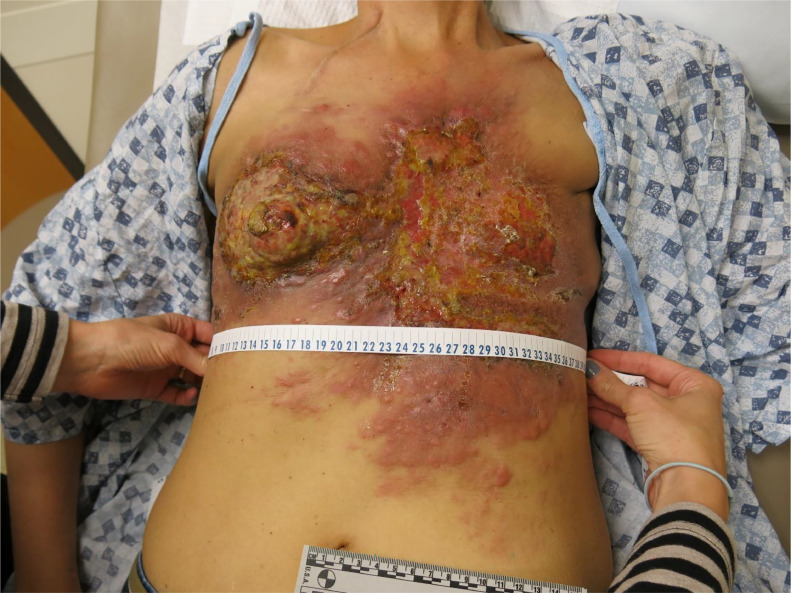Navigating the numerous tests and findings that follow a metastatic breast cancer (MBC) diagnosis can be difficult. When breast cancer spreads to other parts of the body from the breast and surrounding lymph nodes, it is referred to as metastatic breast cancer, or stage IV breast cancer. In order to help your healthcare team determine the best course of action for your particular circumstance, it is essential that you comprehend the results of your tests.
Testing for Metastases
To find out where and how far the cancer has spread, your doctor will probably use a variety of metastatic imaging tests, including bone scans, X-rays, MRIs, PET scans, and CT scans. Treatment planning is guided by these tests, which give a precise picture of the bodily parts that are impacted.
For more information on these diagnostic tools, you can visit Breastcancer.org’s imaging section.
Understanding Your MBC Subtype
Not all breast cancers are the same, and identifying your MBC subtype is essential. Doctors typically test for three key receptors:
- Estrogen receptor (ER)
- Progesterone receptor (PR)
- Human epidermal growth factor receptor-2 (HER2)
Hormone receptor-positive (HR-positive) cancers are fueled by estrogen or progesterone. Subtypes include:
- HR-positive/HER2-negative
- Triple-positive (HR-positive/HER2-positive)
The HER2 protein, which stimulates cell division, is present in higher than usual amounts in HER2-positive malignancies. According to the American Cancer Society, 10–15% of cases are triple-negative breast cancer (TNBC), which is defined as lacking all three receptors (ER, PR, and HER2).
However, about 10% of breast cancer cases are triple-positive, meaning they test positive for all three receptors.
Molecular Testing of Metastases
Your doctor may also recommend molecular testing to analyze tumor samples for gene mutations and proteins that can influence treatment decisions. Key markers include:
- PD-1 and PD-L1: These proteins regulate the immune system. Patients with TNBC and PD-L1 expression may benefit from immunotherapy combined with chemotherapy.
- PIK3CA gene mutations: Found in up to 40% of HR-positive, HER2-negative cancers, these mutations can be targeted with specific drugs.
- BRCA1 and BRCA2 mutations: Involved in DNA repair, tumors with these mutations may respond well to PARP inhibitors, which prevent cancer cells from repairing damaged DNA.
For further insights on targeted therapy options, visit National Cancer Institute.
Next Steps After Testing
Once your receptor status and molecular features are known, your doctor can recommend a treatment plan tailored to your cancer subtype. Preparing questions ahead of appointments can help you make informed decisions, such as:
- What are the possible side effects of treatment?
- How will the treatment impact my daily life?
- Are there alternative options, including clinical trials?
- What happens if treatment is delayed?
Treatment Options for MBC
While metastatic breast cancer currently has no cure, several treatment options can help manage symptoms, slow progression, and improve quality of life:
- Hormone Therapy: Drugs like tamoxifen, aromatase inhibitors, or fulvestrant are effective for HR-positive cancers by reducing hormone-driven tumor growth.
- Chemotherapy: Often recommended for triple-negative tumors or when hormone therapy is ineffective.
- Targeted Therapy: Drugs such as trastuzumab or pertuzumab target HER2-positive tumors. Other targeted therapies may address BRCA mutations or PIK3CA gene changes.
- Radiation Therapy: Helps shrink tumors and relieve pain in affected areas.
- Surgery: Sometimes used for symptom relief but rarely removes all metastatic tumors.
- Immunotherapy: Treatments like pembrolizumab (Keytruda) help the immune system recognize and destroy cancer cells, particularly in PD-L1 positive TNBC.
Learn more about treatment approaches at Cancer Research UK.
The Takeaway
Selecting the best course of treatment requires an understanding of your MBC subtype as well as the findings of imaging and molecular studies. Modern therapy, particularly targeted ones, can greatly improve outcomes and quality of life even when metastatic breast cancer cannot be cured.
To make sure that your therapy meets your individual needs, be open and honest with your healthcare provider about your goals, side effects, and options. The more you know about your cancer, the more capable you will be of navigating the path ahead.















